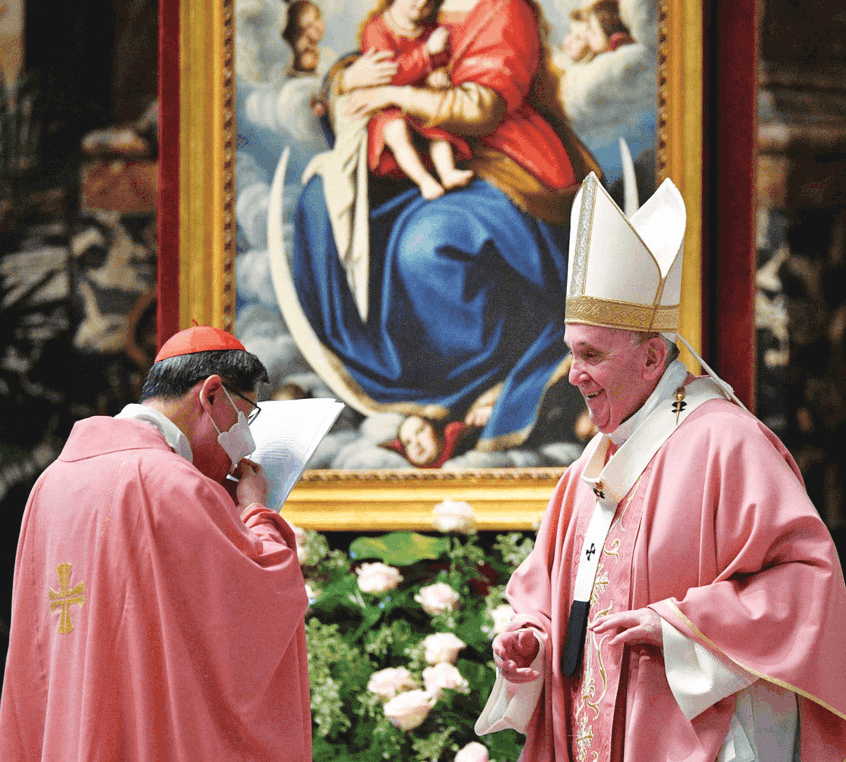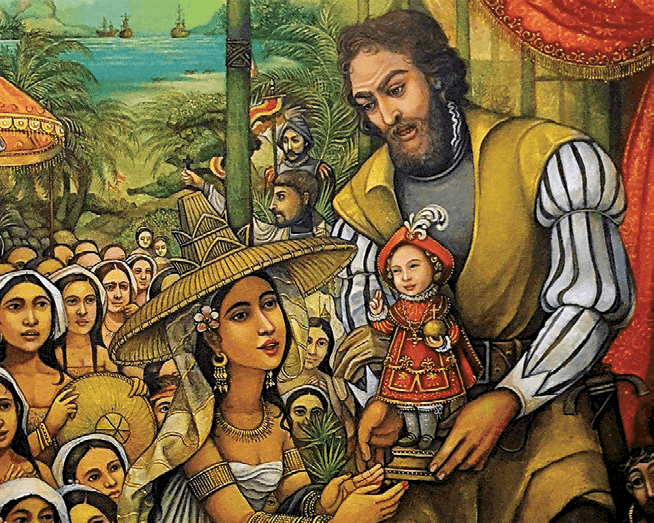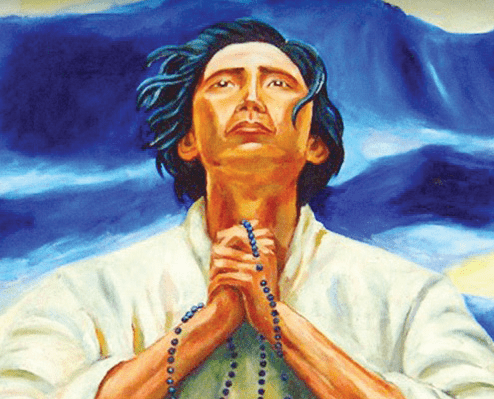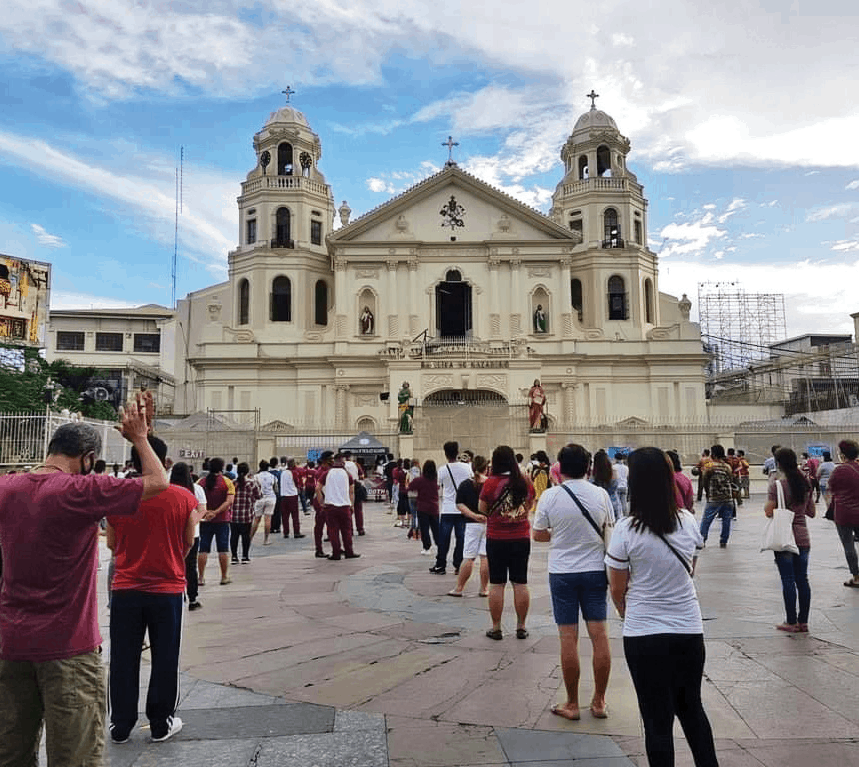Last year, the Church in the Philippines celebrated the Year of Ecumenism, Interreligious Dialogue and Indigenous Peoples. In fact, it was dubbed the “Year of Harmony and Dialogue.” The Church realized the need to look back and seek forgiveness, reconciliation, and healing for the wounds that resulted from the absence of tolerance and dialogue.

The Church also recognized and appreciated the achievements over the last 50 years in many dioceses. The Vatican II document Redentegratio Unitatis focused on ecumenical dialogue while Nostra Aetate promoted interreligious dialogue. Hundreds of Christian churches wished to continue what has been started and search for new ways and means to carry out the dialogue of life, prayer, and action in our time and the decades to come. Moreover, before the closing of Vatican II, St. Pope Paul VI issued the Apostolic Exhortation Ecclesiam Suam that laid down the vision of the “Church of Dialogue” – dialogue with the world, dialogue with other Christian denominations, dialogue with other religions, and dialogue within the Church. This requires building bridges rather than walls, focusing on what unites us rather than what divides us.
Concretely, as Fr. Amado Picardal, CSsR wrote in CBCP News: “This means recognizing that we are brothers and sisters, neighbors and friends, fellow Filipinos. This requires finding ways to bring ahead the dialogue of life and faith as well as the dialogue of action. There are common issues that we need to address together: poverty, drug addiction, armed conflict, human rights violations, extra-judicial killings, environmental destruction/climate change, natural calamities, etc. We look to the future with hope as we journey together to achieve harmony, peace, and justice.”
This year, 2021, has been dubbed the year of Missio Ad Gentes, meaning “Mission to all peoples.” As the Philippine Church rejoices in a national celebration of the quincentennial of Christianity in our homeland, she (the Church) sees something further beyond.
Some would say, why celebrate 500 years of Christianity in the Philippines? Was not Christianity a mere tool for colonial rule? How come Christianity flourished in the Philippines unlike in other colonized countries in Asia like India, Vietnam, and Indonesia?
Bishop Pablo Virgilio David explains the rationale of #500YOC: “The same Christian faith that the conquistadores tried to use in order to pursue their colonial purposes in our country also inspired our revolutionaries around three and a half centuries later to dream of freedom and democracy. [Interestingly, it] is the same Christian faith that eventually motivated them to defend the basic human dignity of the Indios [natives] and to desire to put an end to tyranny and colonial rule.”

The Spanish missionaries had taught the natives to chant the Pasion during the Holy Week. Unknown to the authorities, the same Pasion which was about the suffering Messiah, offering his life for the redemption of humankind, had inspired our heroes to offer their lives for the redemption of our country—at the cost of their own blood, sweat, and tears. (See Reynaldo Ileto’s Pasyon at Rebolusyon.)
According to Bishop David, “our own ancestors were intelligent enough to accept what was good and reject what was evil in what the Spaniards had brought with them when they came to our land. They also eventually learned to distinguish between the missionaries who had totally allied themselves with the colonial politics of the conquistadores and those who were critical of it, those who had the courage to defend the rights of the natives against the abuses and cruelties of the colonial masters.
“The mere fact that we eventually repudiated colonial rule but continued to embrace the Christian faith even after we won the revolution could only mean that the natives did not equate Christianity with colonialism. At some point, the faith that they had embraced was no longer alien to them. It had succeeded in taking root in the fertile ground of our innate spirituality as a people.”
The bishop concluded: “Let us, therefore, make it clear: what we will celebrate in 2021 is not colonialism but the Christian faith that the natives of these islands welcomed as a gift, albeit from people who were not necessarily motivated by the purest of motives. God can indeed write straight even with the most crooked lines.”
The bishops and the rest of the Philippine Church, (as well as Christians of various churches), look at #500YOC with eyes different from that of colonialist history: “Five centuries ago, we received the marvelous gift of the Christian faith; our hearts overflow with joy and gratitude. Why of all the nations and peoples in Asia was the Philippines chosen by God to be among the first to receive this precious gift? The answer is simply this: God’s magnanimous and overflowing love… Only God’s freely given love can illuminate the choice of the Filipino people to receive this valuable gift of faith!” (Pastoral Letter for the 2021 Year of Missio Ad Gentes, Catholic Bishops’ Conference of the Philippines, November 29, 2020)
Does this say something to the Church in the Philippines given the fact that the nations surrounding her have different religious traditions? Is this not a sign of a special call, as St. Pope John Paul II affirmed during his first visit to the Philippines in 1981?
This treasured gift of faith should spur the Philippine Church to share this gift with others, not through proselytism but by witnessing and “respectful proclamation” (Dialogue and Proclamation, Pontifical Council for Interreligious Dialogue, May 19, 1991). In fact, the theme chosen by the Catholic Bishops’ Conference of the Philippines (CBCP) for this fifth centennial notes that all Christians are “gifted to give.” Indeed, this is part of Christ’s mission mandate to his disciples: “What you have received as a gift, give as a gift” (Mt 10:8). So, during our nation’s celebration of 500 years of Christianity, we pray for a missionary renewal of our Church—both at home (ad intra) and beyond our borders (ad extra).

For five centuries, there have been shining lights like the canonization of two Filipino laymen, Saints Lorenzo Ruiz and Pedro Calungsod, as well as shadows like corruption that continue to persist in our country. Looking back at the past 500 years, Filipinos are invited to reflect and learn, through a shared communal discernment and the help of the Holy Spirit, how to take new steps in our faith journey as a nation. Not content with being the predominantly Christian nation in Asia, the Filipino faithful have a great responsibility and mission as was expressed by St. John Paul II: “I wish to tell you of my special desire: that the Filipinos will become the foremost missionaries of the Church in Asia.” This is a clear invitation and challenge to engage in missio ad gentes!

First Friday Mass outside the Minor Basilica of
the Black Nazarene in Quiapo, Manila.
In Evangelii Gaudium (The Joy of the Gospel), Pope Francis deepens our awareness of the call to share our faith, affirming that missionary evangelization “calls for personal involvement on the part of each of the baptized…. Every Christian is a missionary to the extent that he or she has encountered the love of God in Christ Jesus: we no longer say that we are ‘disciples’ and ‘missionaries,’ but rather that we are always ‘missionary disciples’ ” (EG, 120). How? For Pope Francis, salvation history is a “great stream of joy” (EG, 5) which we must also enter. Let the joy of faith be revived, because God’s mercies never end (cf. EG, 6).
In these times of pandemic, how can we fail to see how much the world needs true joy? how much it needs eyes of mercy? With Pope Francis, we ask two graces from the Lord: “Let us not allow ourselves to be robbed of missionary enthusiasm” (EG, 80) and “…vigor” (EG, 109). This celebration of the 500th anniversary of the coming of Christianity in the Philippines is an opportune time and a moment of grace for all.
Fr. Am Mijares




